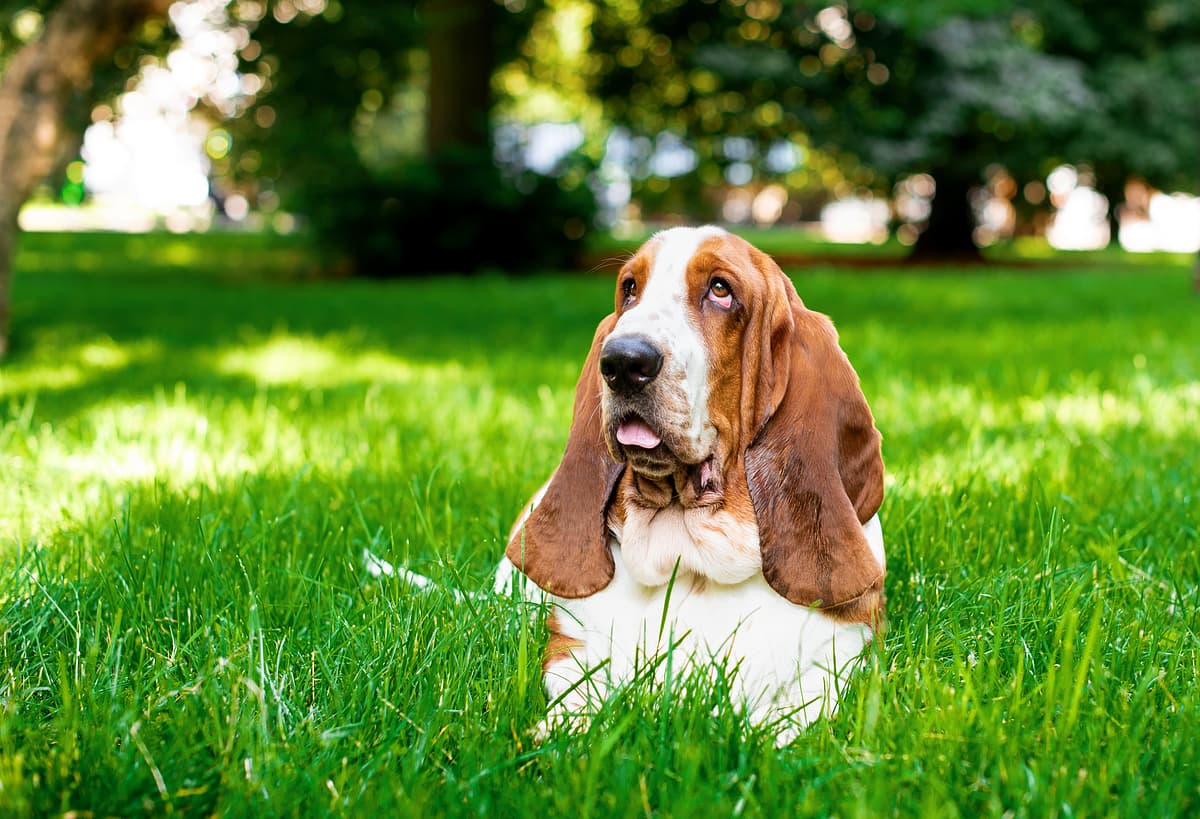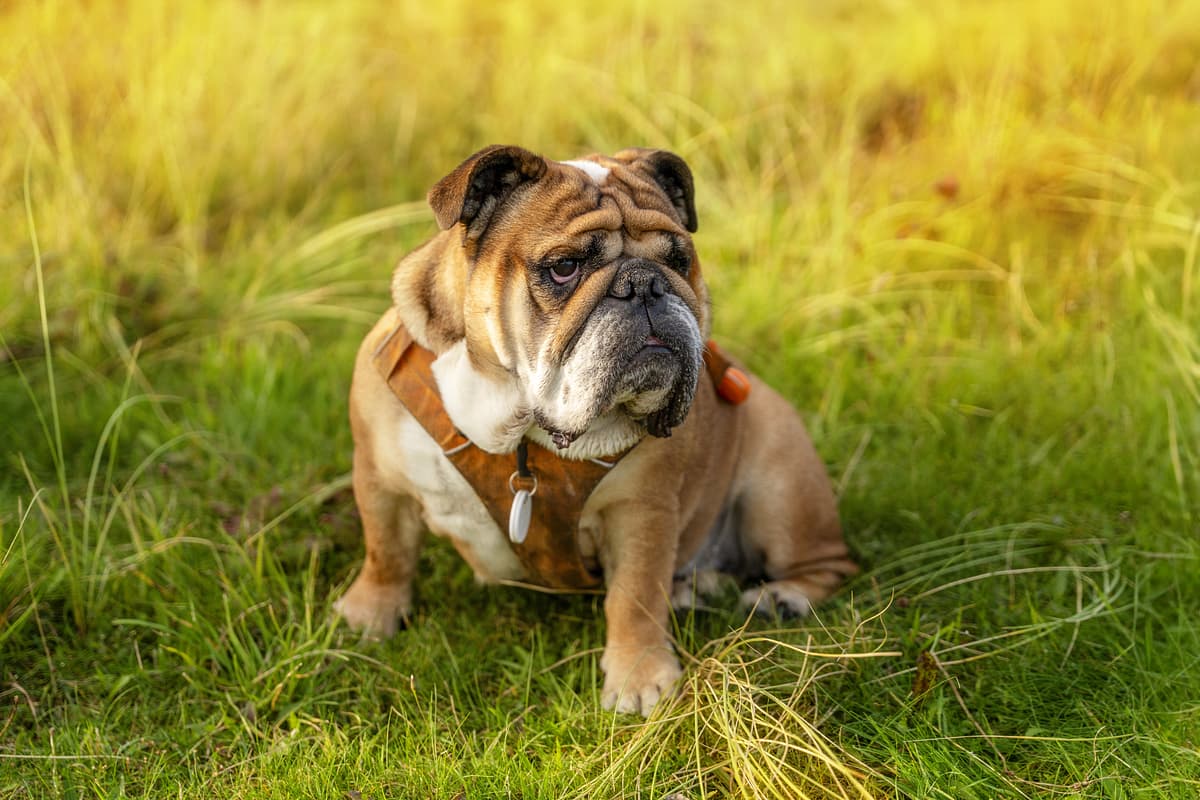Basset Hound vs English Bulldog
Discover the differences between Basset Hound and English Bulldog to make the best choice for your situation.
Try different breeds

Basset Hound
Long ears, soulful eyes, and an easygoing nature define this loyal companion. Basset Hounds are gentle, affectionate dogs who thrive in family settings and cherish close bonds.

English Bulldog
Stocky, courageous, and affectionate, this breed charms with its wrinkled face and calm nature. Loyal and gentle, it thrives as a loving family companion.
Quick comparison
Medium
23–29 kg
Short, dense
12–13 years
20–27 kg
Low activity needs
Medium
23–25 kg
Short, smooth
8–10 years
18–23 kg
Low activity needs
Personality & behavior
Compare the personality traits and behavioral characteristics of both breeds.
Basset Hound
Gentle and welcoming with people and pets
Learns basic commands, can be stubborn
Prefers lounging to vigorous daily activity
Enjoys play but not overly exuberant
Adjusts well to different home environments
English Bulldog
Affectionate and gentle with family and children
Learns basic commands with some patience
Prefers lounging over vigorous physical activity
Enjoys play but tires fairly quickly
Adjusts well to most living environments
Care needs
Exercise, grooming, and daily care requirements
Basset Hound
Ear infections, intervertebral disc disease
English Bulldog
Brachycephalic syndrome, skin fold infections
Suitability
How well each breed fits different living situations and families
Basset Hound
Good option
Easygoing temperament and manageable exercise needs suit inexperienced owners
Very suitable
Calm demeanor and moderate exercise needs fit apartment life well
Not ideal
Low energy levels may not match active, outdoorsy lifestyles
Great choice
Patient and gentle with children, generally tolerant of family activity
Highly suitable
Usually accepts other pets due to a gentle, non-territorial nature
Prone to anxiety
Dislikes being left alone for extended periods and may become destructive
English Bulldog
Good option
Easygoing, low-maintenance nature suits owners with limited dog experience
Excellent fit
Moderate exercise needs and calm demeanor work well in small living spaces
Not ideal
Low stamina and breathing issues make them unsuited for high-activity lifestyles
Very suitable
Gentle, patient, and tolerant with young children when properly socialized
Usually compatible
Generally sociable but may need guidance with other pets, especially dogs
Not recommended
They struggle with long periods alone and are prone to separation anxiety
Breed strengths
What each breed excels at and their best qualities
Basset Hound
- Gentle and patient with children
- Affectionate and loyal family companion
- Excellent scent tracking ability
- Generally good with other dogs
- Low to moderate exercise requirements
English Bulldog
- Affectionate with family members
- Generally good with children
- Low exercise requirements
- Minimal grooming needs
- Adaptable to apartment living
Challenges & considerations
Potential challenges and considerations for each breed
Basset Hound
- Prone to ear infections due to long ears
- Can be stubborn and independent-minded
- Tendency to gain weight easily
- Slow to house train compared to other breeds
- May bark or howl when left alone
English Bulldog
- Prone to respiratory problems
- High risk of overheating
- Susceptible to skin infections
- Can be stubborn during training
- Tends to drool frequently
Ready to choose your perfect breed?
Learn more about each breed or compare other breeds to find the perfect match for your lifestyle.
Discover more helpful tools
Make use of our other free tools to get the most out of your pet experience
